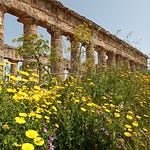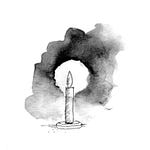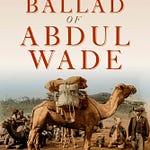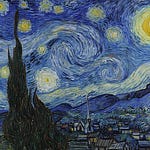There’s a spot just outside of Iluka on the north coast of New South Wales known as Frazer’s Reef. When the tide is high, large, oily green waves roll in and obliterate themselves against the rock ledge, sending geysers of white foam shooting high into the sky. I was there one afternoon a few weeks back to watch the show. As I made to leave, I noticed I had been joined on the ledge by a local woman. She must have been in her sixties, her face as dry and windblown as the beach that she had crossed to access the rock ledge. She sat on a natural seat of rock, knees tucked up under her chin, arms wrapped tight around her legs. The southerly that blew whipped strands of hair across her face. As I walked past her, she caught my eye and nodded at the next set of green monsters rolling in. “The power of the water. It’s so fucking beautiful,” she said in a raspy voice that I struggled to catch over the sound of wind and wave. “If I don’t get down here once a week, I go mad.” There was a distant look in her glassy eyes, and I couldn’t help but wonder if she may have skipped a week. I bade her good evening and moved off into the dusk.
I struggle to tell people where I am from. There isn’t one place. Childhood started on the opal fields of NSW between Brewarrina and Lightning Ridge and ended up in the Hunter Valley via seven years in the Mudgee region. If there is one word that encapsulates all of these places, and maybe the answer to the question of where I am from, it is “country”. I am from the country. And yet, as soon as I was old enough, I was out of there. In the intervening years I have lived in cities with populations ranging from one million at the low end to twenty million at the high end.
What I never found in these cities were the simple things that had made me happy growing up: birdsong, rivers, the vastness of wide blue skies, the direct contact and interaction with the seasons, seasons that seldom started on the first of the month. The asphalt and concrete of our urban environments has always felt like a thin cover that keeps us disconnected from nature, a nature that is only allowed to burst through in controlled moments of urban planning.
I went to the cities, like many people from the country do, because that is where the Universities are, that is where the work is, in the big smoke, hidden amongst the concrete.
I remember one afternoon walking down Queen Street in Brisbane, returning from lunch with my manager. We were coordinating our movements for the following week. “I’ll be in the office two days next week,” they said. “I’ll be in one day,” I replied then paused before adding, “I could try to do two.” But there was no way I could do two. Not 9 to 5. We’d been working from home since the start of the pandemic and the idea of going back to an office five days a week, nine to five was, for me, impossible. Truth be told, I rarely made it past 3pm on the one day that I did go in.
I suspect employers have realised this. When I started my last office job we had 38 desks (work stations in doublespeak) to service around 50 employees. By the time I resigned, the head count had grown to 120, yet there were still only 38 desks. Now, that is either monumentally bad planning or an acceptance that very few people will be returning to what were once considered normal office hours.
People smarter than me have written about the detrimental effects this great escape from the office will have on inner city businesses, the benefits that people will derive from the extra time they have at home once the office commute has been excised from their life or the extra productivity that working from home supposedly fosters. What I wonder about is what this means for where we live.
Work has so often been the deciding factor of where we mortals choose to rent, and where the superhumans choose to buy. But what happens when we become untethered from the office, when the decision of where we choose to inhabit is not dictated by proximity to our place of work? Where do we go then?
It has taken me years to accept that it is in the country where I am happiest. When I went out of office I went home to regional Australia. I was determined to make a change in my life and part of that change was to reengage with the activities that had always brought me happiness. From since I can remember, I have fished. Fished may be an inexact term as it implies that fish are involved which they rarely are.
Fish feed at certain times of the day, at specific times of the eternal cycle of tides and the tides are governed by the phases of the moon. To fish is to become attune to these natural movements. For the first few months of this year I have organised my life around high tides and low tides, dawns and dusks. I have synced my movements with sunrise and sunset, full moon and new moon, with wind and rain. The act of fishing connects me to the rhythms of nature.
There are moments when the casting and retrieving is no more than an excuse to continue watching the Ospreys that circle stiff winged above me before plummeting on their deadly descent, talons slashing at the surface of the water hoping to contact the back of an unsuspecting fish. At other times I watch the pods of dolphins as they hunt upriver with the incoming tide, smashing schools of baitfish up against the rock wall in coordinated attacks. I feel an affinity with these predators, we are after the same thing, me just in a more inelegant and inefficient way. But I also empathise with the baitfish, the prey. Are we not all pursued in some way? All doing our best to get home safely?

Fishing connects me to something larger than myself. I imagine this connection is felt by the hikers, and the surfers and campers and the photographers and the birdwatchers and anyone who has ever closed the door behind them and set off for the outdoors. The activity, whatever it may be, is, after all, just an excuse to be outside, connected again to a lifeforce greater than our own. And if there is such vitality and meaning in this connection it can only be a pity that in our normal working lives we reserve such a minute proportion of our time for these activities, relegating them to Easters and Christmases and semester breaks as if they were secondary concerns, pursuits of no importance.
For me, leaving the office is about finding my way, finding a place. I am not sure where I will eventually end up. But for now, as I stand at the water’s edge, the butcher birds carol what I imagine is encouragement, the soft pink of a new day is smudging the horizon and I think, as I cast and retrieve, cast and retrieve, that if I can do this at least once a week, then maybe, just maybe, I won’t go mad.

















Share this post